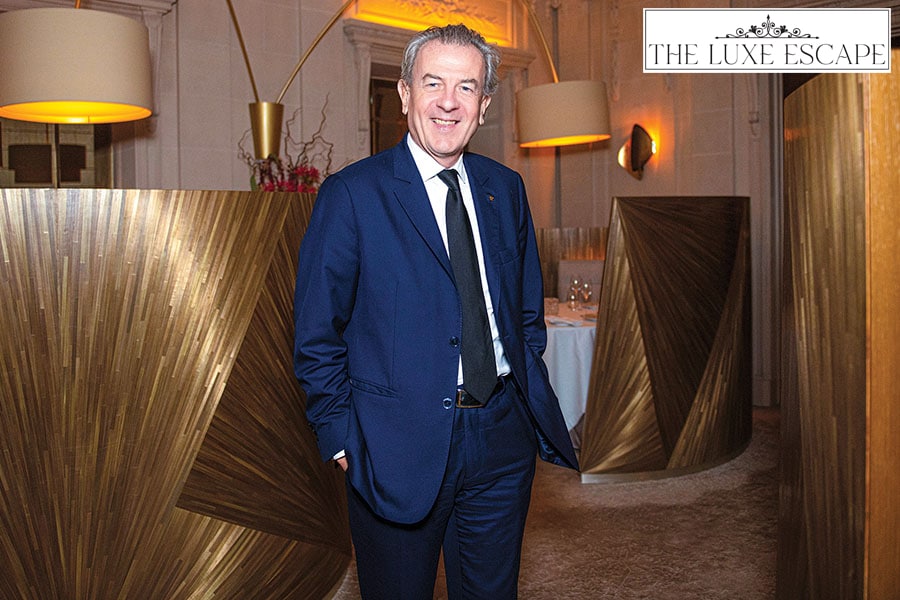
Thoughtfulness is luxury, not the marble used: Relais & Châteaux's Laurent Gardinier
The president of the luxury hotel association talks about how a focus on local culture, sustainability, culinary excellence, and social responsibility is driving the group's future
 Laurent Gardinier, President of luxury hotel association Relais & Châteaux Image: Virginie Clavieres/Paris Match Via Getty Images
Laurent Gardinier, President of luxury hotel association Relais & Châteaux Image: Virginie Clavieres/Paris Match Via Getty Images
If you’ve ever tucked yourself into a fluffy hotel bed only to discover the light switch is on the other side of the room, you have a frustration in common with Laurent Gardinier. The president of luxury hotel association Relais & Châteaux, Gardinier is also the co-owner of the Domaine Les Crayères hotel in Reims, France, and the Michelin-starred restaurant Le Taillevent in Paris—so it’s safe to say that he knows a thing or two about hospitality.
He looks out for attention to detail, culinary excellence and service to community when surveying new properties to join the international network that was founded in 1954 by a group of hoteliers and restaurant owners as a way to offer travellers a consistent level of quality. Relais & Châteaux now spans 580 member properties in 65 countries across five continents. In India, the association has nine hotel members, including The Malabar House in Kochi and SUJÁN Jawai in Bilaspur, and one restaurant member, Masque in Mumbai.
The association sees immense potential in the Indian market, for its diverse culinary heritage and burgeoning luxury travel sector. Despite currently having only 15 members in the Indian subcontinent, the group is conducting market studies to identify and integrate more properties. With Indian travellers’ spending patterns mirroring those of high-value markets like the US, Relais & Châteaux is poised to expand its footprint in the country. Edited excerpts from an interview:
Q. As Relais & Châteaux celebrates its 70th anniversary, could you share some insights into the journey of the organisation, particularly its evolution in luxury hospitality and gastronomy?
While much has changed since the group was founded 70 years ago, one thing that has stayed the same for us is our commitment to excellence and quality. As a not-for-profit association of restaurants and hotels, we believe travel and gastronomy are both dependent on nature and our natural surroundings, and so it is our duty to ensure the sustained integrity and vitality of our surroundings. We believe in personalised hospitality, which allows each property from the network to maintain its unique character and individuality while subscribing to our larger vision.
(This story appears in the 14 June, 2024 issue of Forbes India. To visit our Archives, click here.)

















